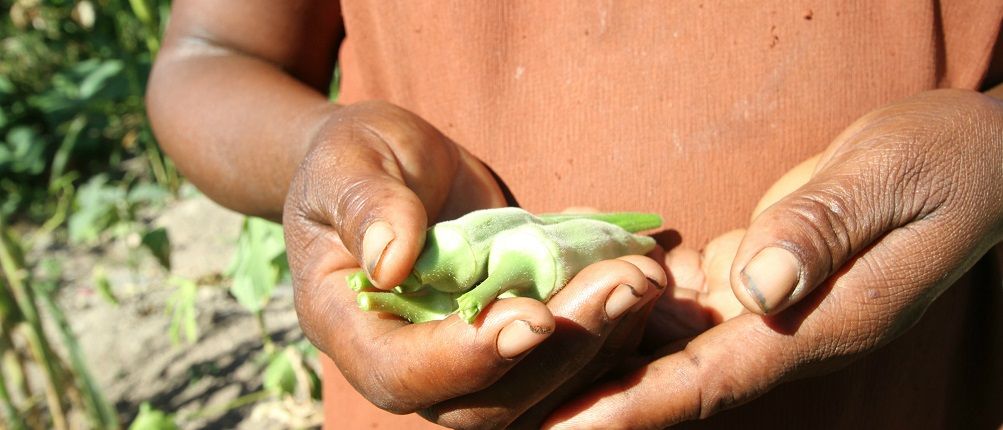
This project has been completed.
Food security & WASH in the slums of Haiti
Food security is for many Haitians a constant challenge and daily struggle. Around 80% of Haitians earn less than 2 USD per day, and the natural resources of the country are under severe pressure. In the urban slums of Tabarre and Cité Soleil, the situation is even worse, and food security is not the only problem. Due to its coastal location, many drainage channels from uphill areas terminate in the area: bringing with them tons of garbage and severe consequences for the health of the local inhabitants, who often lack hygiene awareness, and sanitation facilities themselves. These circumstances contribute to the spreading of deadly vector-borne and gastrointestinal diseases that are especially risky to children.
Based on a previous WASH project in Cité soleil and successfully conducted urban agriculture pilot projects, in October 2014 Malteser International started a multi-sectoral project benefiting 6.000 families in the vulnerable slum communities of the capital, encompassing the fields of food security, water, sanitation, hygiene and disaster risk reduction. Through a close collaboration with our Haitian partners and the support of the Haitian agricultural ministry, families learn how to undertake urban agriculture and improve their hygiene to ensure the availability of food for the whole community and contribute to a life in a cleaner and healthier environment.
The great majority of people in Tabarre and Cité Soleil live below the poverty line. It is a day to day existence, largely eked out with casual labor.
Sanitation is very poor, and access to latrines is rare. A low level of hygiene awareness has led to a severe problem with garbage. Waste clogs drainage channels, and leads to heavy flooding during rainy periods, which washes waste materials, including feces into the houses.
Malteser International has been working on projects including cholera prevention, the construction of sanitary facilities at school, and training of locals in disaster risk reduction. Cooperation with the local population and local communities has been a cornerstone of this work.
This project widens the focus of Malteser International’s work in Haiti by adding food security as an important objective.
Develop the local capacities of urban slum communities in food security, and strengthen their resilience against natural disasters and socio-economic shocks using a multi-sectoral approach.
- Management training for our local partners.
- Development and extension of successful urban agriculture pilots (urban gardens, chicken breeding, aquaponics, community cooker etc.).
- Community gardens for 20 schools and orphanages.
- Rehabilitation of latrines and hygiene promotion in 55 schools.
- Focus groups for nutrition and food hygiene.
- Rehabilitation of drainage channels.
- Equipping volunteer committees in waste management.
- Equipping and training of school brigades (DRR).
Country info
Captial: Port-au-Prince
Area: 27,750 km²
Population: c. 10.4 Million
Project data
Project duration: since January 2014
Donors: German Federal Ministry for Economic Cooperation and Development, private donations
Partners: 5 Local NGOs
Last updated: June 2016








